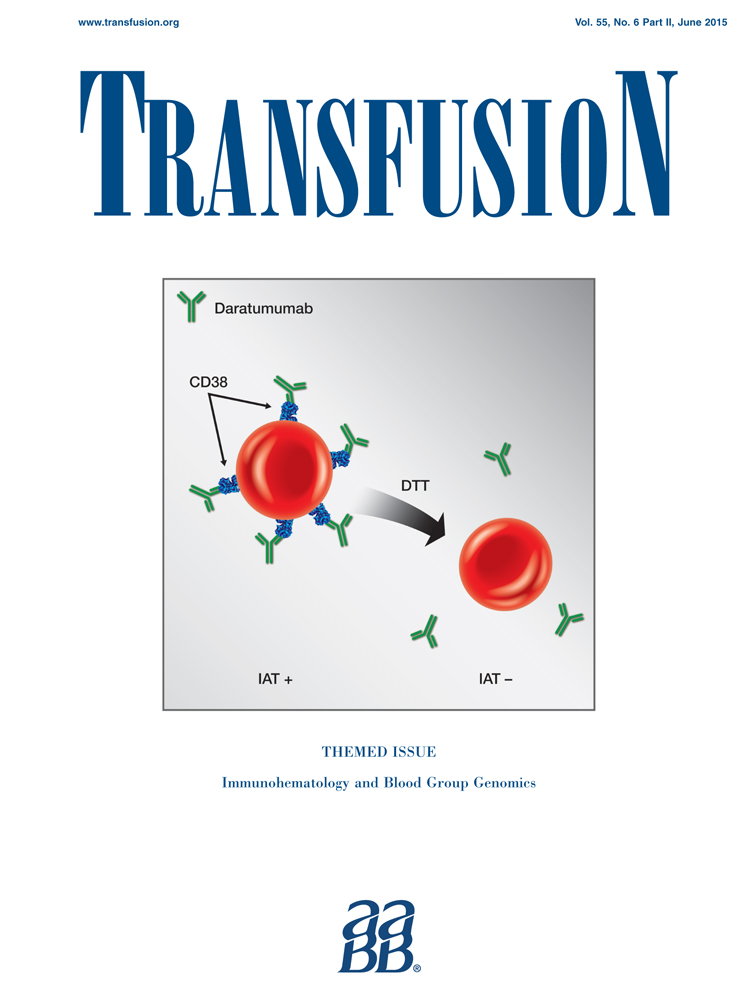CD44 antibody–mediated amelioration of murine immune thrombocytopenia (ITP): mouse background determines the effect of FcγRIIb genetic disruption
Abstract
Background
Several monoclonal antibodies to CD44 can successfully ameliorate murine immune thrombocytopenia (ITP). As these antibodies may be a potential replacement for intravenous immune globulin (IVIG) in the treatment of ITP and other autoimmune diseases, an understanding of their mechanisms of action is important. The role of the inhibitory Fc receptor (FcγRIIb) in the mechanism of action of IVIG and therapeutic CD44 antibodies remains uncertain. To assess if FcγRIIb in splenic macrophages plays a critical role in the action of these two therapeutics, splenectomized mice and mice genetically deficient in FcγRIIb on different backgrounds were evaluated.
Study Design and Methods
Thrombocytopenia was induced in FcγRIIb-deficient mice on B6;129S, C57BL/6, and BALB/C backgrounds, as well as splenectomized mice and control mice by platelet (PLT) antibody. PLT counts were enumerated before and after treatment with anti-CD44, red blood cell antibodies, or IVIG.
Results
Anti-CD44 is ineffective at inhibiting thrombocytopenia in B6;129S FcγRIIb-deficient mice but, like IVIG, is effective in splenectomized mice and FcγRIIb-deficient mice on the BALB/C and C57BL/6 background.
Conclusion
These data suggest that 1) the B6;129S background itself is unlikely to be the sole reason for anti-CD44's inability to function in B6;129S FcγRIIb-deficient mice, 2) the simple loss of macrophage FcγRIIb expression alone is insufficient to explain anti-CD44 ameliorative function, and 3) a combination of mouse background genes in addition to FcγRIIb genetic disruption may affect the ability of anti-CD44 to function therapeutically. Similarities between IVIG and anti-CD44 mechanisms suggest that patients responsive to IVIG may also potentially respond to anti-CD44 treatment.




